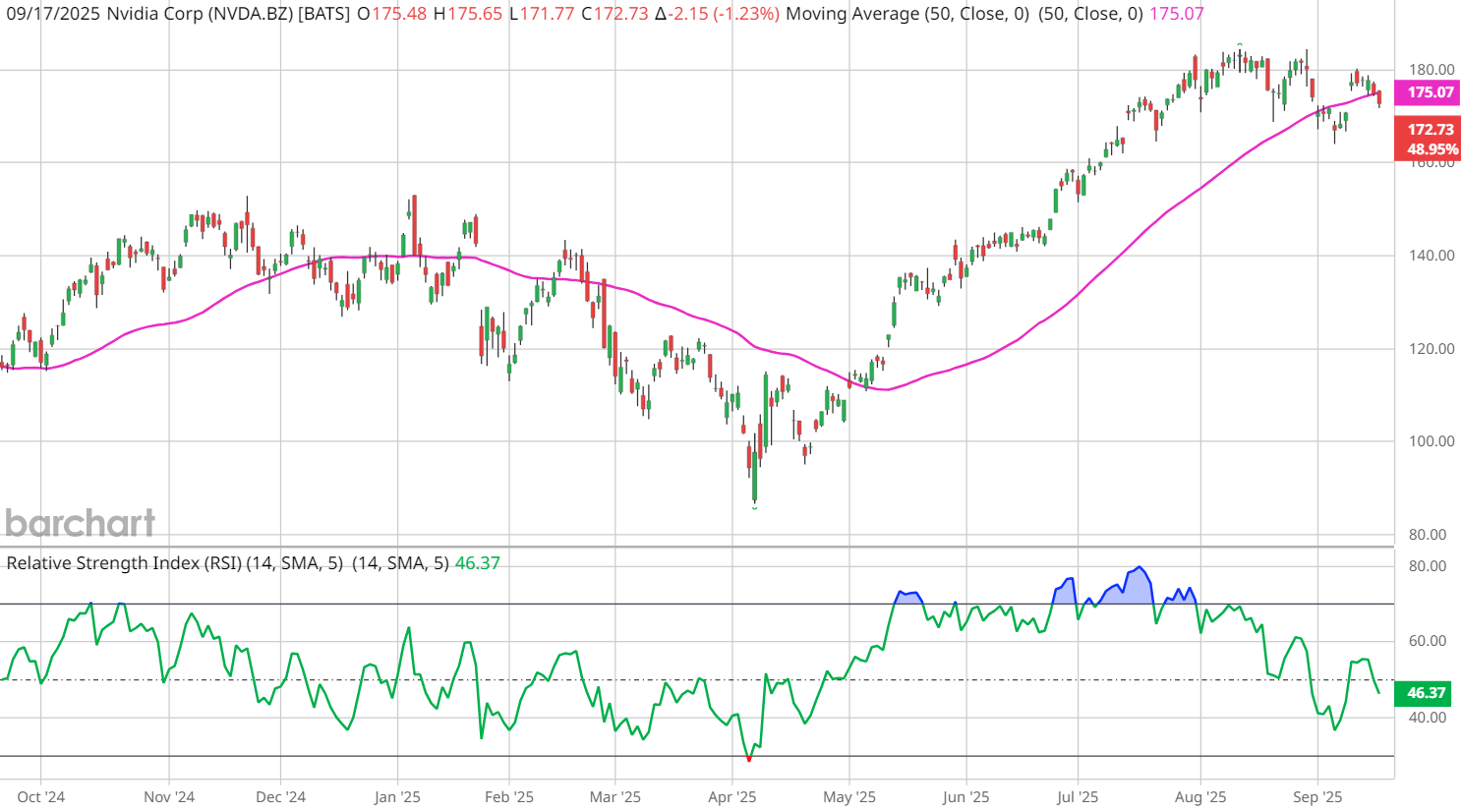Nvidia CEO Jensen Huang Says ‘That’s Fine’ as China Ramps Up AI Arms Race With NVDA Chip Ban
/Jen-Hsun%20Huan%20NVIDIA's%20Founder%2C%20President%20and%20CEO%20by%20jamesonwu1972%20via%20Shutterstock.jpg)
Nvidia (NVDA) remains in the hot seat today, as Beijing continues to take aim at the U.S. semiconductor industry. A Financial Times report claims the Cyberspace Administration of China (CAC) has banned major tech companies from buying Nvidia’s artificial intelligence (AI) chips, and instructed the likes of ByteDance and Alibaba (BABA) to discontinue testing of the RTX Pro 6000D chip that’s tailor-made for mainland buyers.
In response to the news, Nvidia CEO Jensen Huang told reporters on Wednesday that he’s “disappointed,” but will be “patient” as regulatory roadblocks are smoothed out.
"There are a lot of places we can't go to, and that's fine," said Huang, who is in the U.K. alongside many other tech leaders for President Trump’s state visit. He added that “We’ve guided all financial analysts not to include China” in their forecasts.
China Takes Aim at U.S. Chips
This is the latest escalation after weekend reports revealed China was targeting domestic chipmakers for two probes ahead of this week’s trade talks in Madrid, while Nvidia itself has been accused of violating antimonopoly regulations following its Mellanox acquisition in 2020.
NVDA is down more than 1% in early trading, extending a 5% drawdown from its post-earnings highs, set in mid-August. The shares ended Tuesday beneath their 50-day moving average.

What’s the Bigger Story on Nvidia and China?
There’s more to the story here than just saber-rattling to gain an edge in the ongoing U.S.-China trade war; it’s a genuine arms race to see who can lead on AI technology, according to Barchart’s Senior Market Strategist John Rowland, CMT.
Chinese researchers just published new research on SpikingBrain 1.0, an AI system based on spiking neural networks in the human brain - creating an energy-efficient model that's up to 100 times faster than standard systems.
Plus, the researchers claim the model was trained on only about 2% of the data used by some mainstream large language models (LLMs).
And the kicker? Rowland points out that SpikingBrain 1.0 runs entirely on China’s homegrown MetaX chip platform, and not Nvidia hardware.
While the data has not yet been peer-reviewed, the takeaway is clear. By driving home its ability to surpass Western LLM models at a reduced cost, using entirely Chinese tech, Beijing isn't trying to level the playing field on AI - it's playing to win.
Alibaba (BABA) stock, meanwhile, opened more than 2% higher in New York after landing a massive data center deal to provide AI chips to state-owned China Unicom.
On the date of publication, Elizabeth H. Volk had a position in: NVDA . All information and data in this article is solely for informational purposes. For more information please view the Barchart Disclosure Policy here.